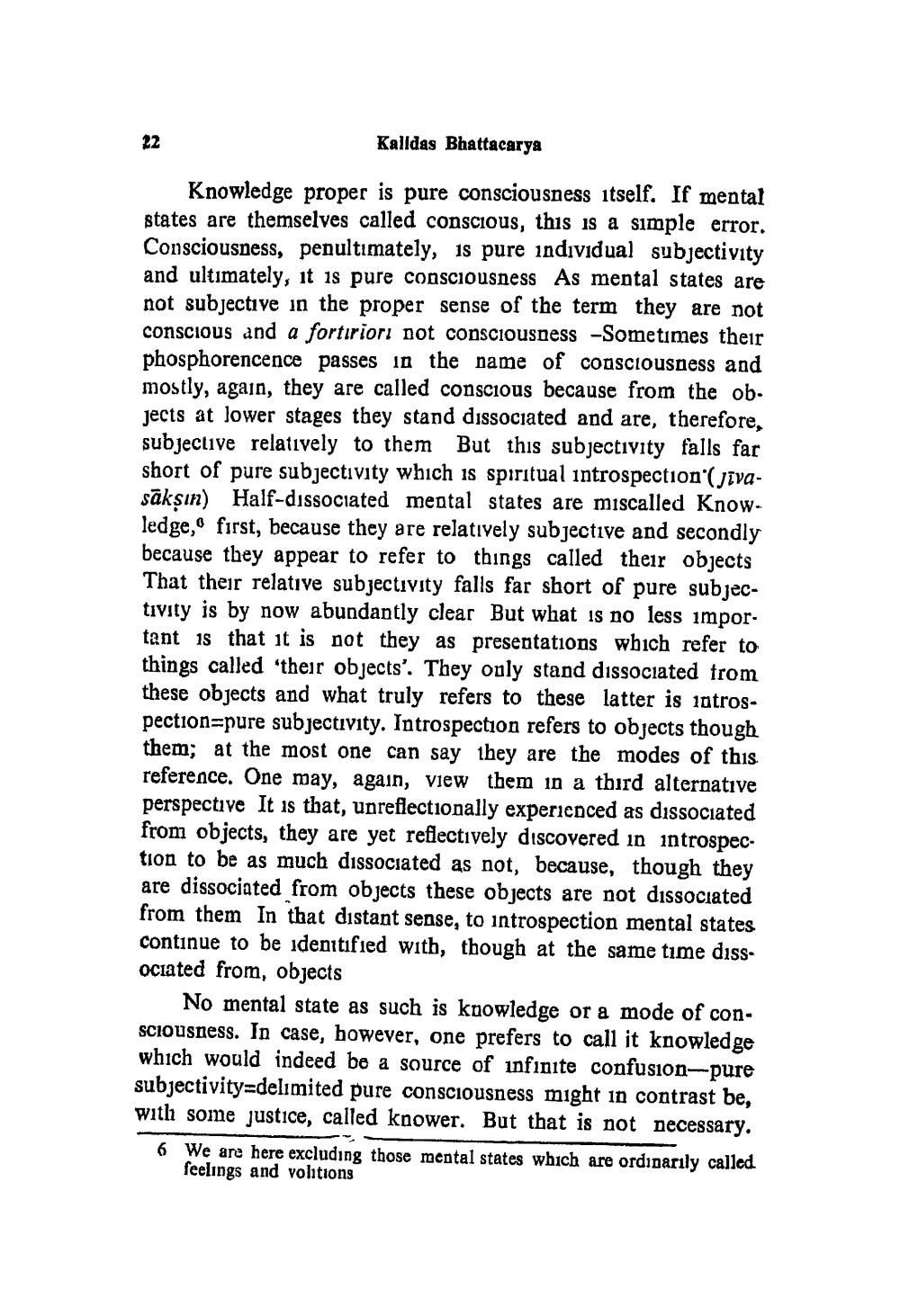________________
Kalldas Bhattacarya
Knowledge proper is pure consciousness itself. If mental states are themselves called conscious, this is a simple error. Consciousness, penultimately, is pure individual subjectivity and ultimately, it is pure consciousness As mental states are not subjective in the proper sense of the term they are not conscious and a fortiriori not consciousness -Sometimes their phosphorencence passes in the name of consciousness and mostly, again, they are called conscious because from the objects at lower stages they stand dissociated and are, therefore, subjective relatively to them But this subjectivity falls far short of pure subjectivity which is spiritual introspection (Jivasākṣin) Half-dissociated mental states are miscalled Knowledge, first, because they are relatively subjective and secondly because they appear to refer to things called their objects That their relative subjectivity falls far short of pure subjectivity is by now abundantly clear But what is no less important is that it is not they as presentations which refer to things called 'their objects'. They only stand dissociated from these objects and what truly refers to these latter is introspection pure subjectivity. Introspection refers to objects though them; at the most one can say they are the modes of this reference. One may, again, view them in a third alternative perspective It is that, unreflectionally experienced as dissociated from objects, they are yet reflectively discovered in introspection to be as much dissociated as not, because, though they are dissociated from objects these objects are not dissociated from them In that distant sense, to introspection mental states continue to be identified with, though at the same time dissociated from, objects
22
No mental state as such is knowledge or a mode of consciousness. In case, however, one prefers to call it knowledge which would indeed be a source of infinite confusion-pure subjectivity-delimited pure consciousness might in contrast be, with some justice, called knower. But that is not necessary.
6 We are here excluding those mental states which are ordinarily called feelings and volitions




